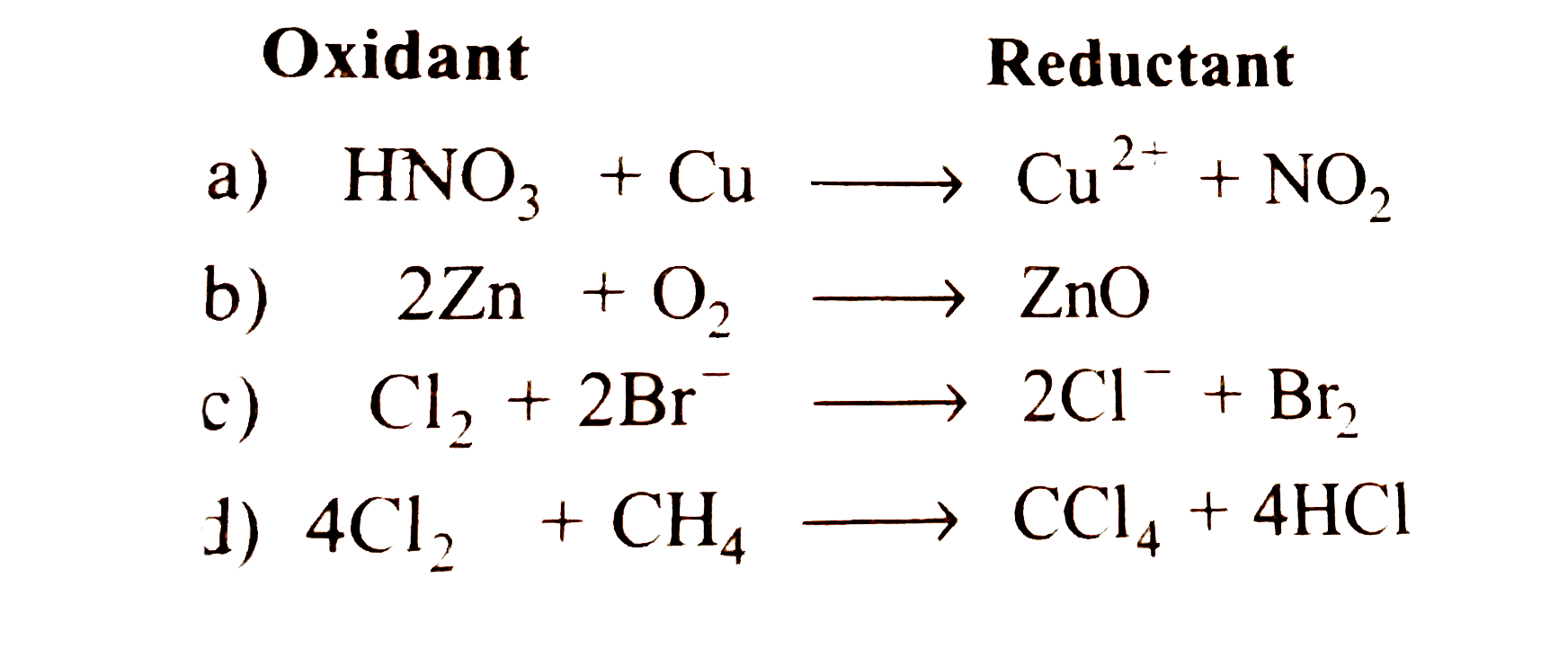Can oxidation or reduction take place alone? Why or why not? What are such reactions called?
Text Solution
Oxidation or reduction cannot take place alone. This is because if one substance loses oxygen, i.e., undergoes reduction, there must be another substance to take up this oxygen, i.e., to undergo oxidation. Similarly, if one substance loses hydrogen, i.e., undergoes oxidation, there must be another substance to take up this hydrogen, i.e., to undergo reduction. Hence, oxidation and reduction always take place together. These reactions are called redox reactions.
|
Topper's Solved these Questions
- CHEMICAL REACTIONS AND EQUATIONSBOOK - MTG IIT JEE FOUNDATIONCHAPTER - CHEMICAL REACTIONS AND EQUATIONSEXERCISE - EXERCISE (LONG ANSWER TYPE)
34 Videos
- CHEMICAL REACTIONS AND EQUATIONSBOOK - MTG IIT JEE FOUNDATIONCHAPTER - CHEMICAL REACTIONS AND EQUATIONSEXERCISE - EXERCISE (INTEGER/NUMERICAL VALUE TYPE)
5 Videos
- CHEMICAL REACTIONS AND EQUATIONSBOOK - MTG IIT JEE FOUNDATIONCHAPTER - CHEMICAL REACTIONS AND EQUATIONSEXERCISE - EXERCISE (VERY SHORT ANSWER TYPE)
16 Videos
- CHEMICAL EQUILIBRIUMBOOK - MTG IIT JEE FOUNDATIONCHAPTER - CHEMICAL EQUILIBRIUMEXERCISE - EXERCISE (INTEGER/NUMERICAL VALUE TYPE)
5 Videos
- FOOTSTEPS TOWARDS (NEET) BOOK - MTG IIT JEE FOUNDATIONCHAPTER - FOOTSTEPS TOWARDS (NEET) EXERCISE - MCQ
45 Videos
Similar Questions
Knowledge Check
Both oxidation and reduction takes place in
ANaBr+HCl→NaCl+HBrBHBr+AgNO3→AgBr+HNO3CH2+Br2→2HBrDCaO+H2SO4→CaSO4+H2OOxidation and reduction process involves the transaction of electrons. Loss of electrons is oxidation and the gain of electrons is reduction. It is thus obvious that in a redox reaction, the oxidant is reduced by accepting the electrons and the reductant is oxidised by losing electrons. The reactions in which a species disproportionates into two oxidation states (lower and higher) are called disproportionation reactions. In electrochemical cells, redox reaction is involved, i.e., oxidation takes place at anode and reduction at cathode.
Which of the following reactions is/are correctly indicated?
 AHNO3+Cu→Cu2++NO2B2Zn+O2→ZnOCCl2+2Br−→2Cl−+Br2D4Cl2+CH4→CCl4+4HCl
AHNO3+Cu→Cu2++NO2B2Zn+O2→ZnOCCl2+2Br−→2Cl−+Br2D4Cl2+CH4→CCl4+4HCl
What is the reaction called when oxidation and reduction take place simultaneously ? Explain with one example.
View SolutionWhat is the reaction called when oxidation and reduction take place simultancously ? Explain with one example .
View SolutionWhat is the reaction called when oxidation and reduction take place simultancously ? Explain with one example .
View SolutionWhich reaction takes place preferentially and why?
View SolutionSelect the correct word from the words in bracket to complete the sentence:
Electrolysis is a/an _______[oxidation / reduction /redox] reaction in which reduction reaction takes place at the ________[cathode/anode]
View SolutionWhy connot oxidation occur without reduction?
View Solution
